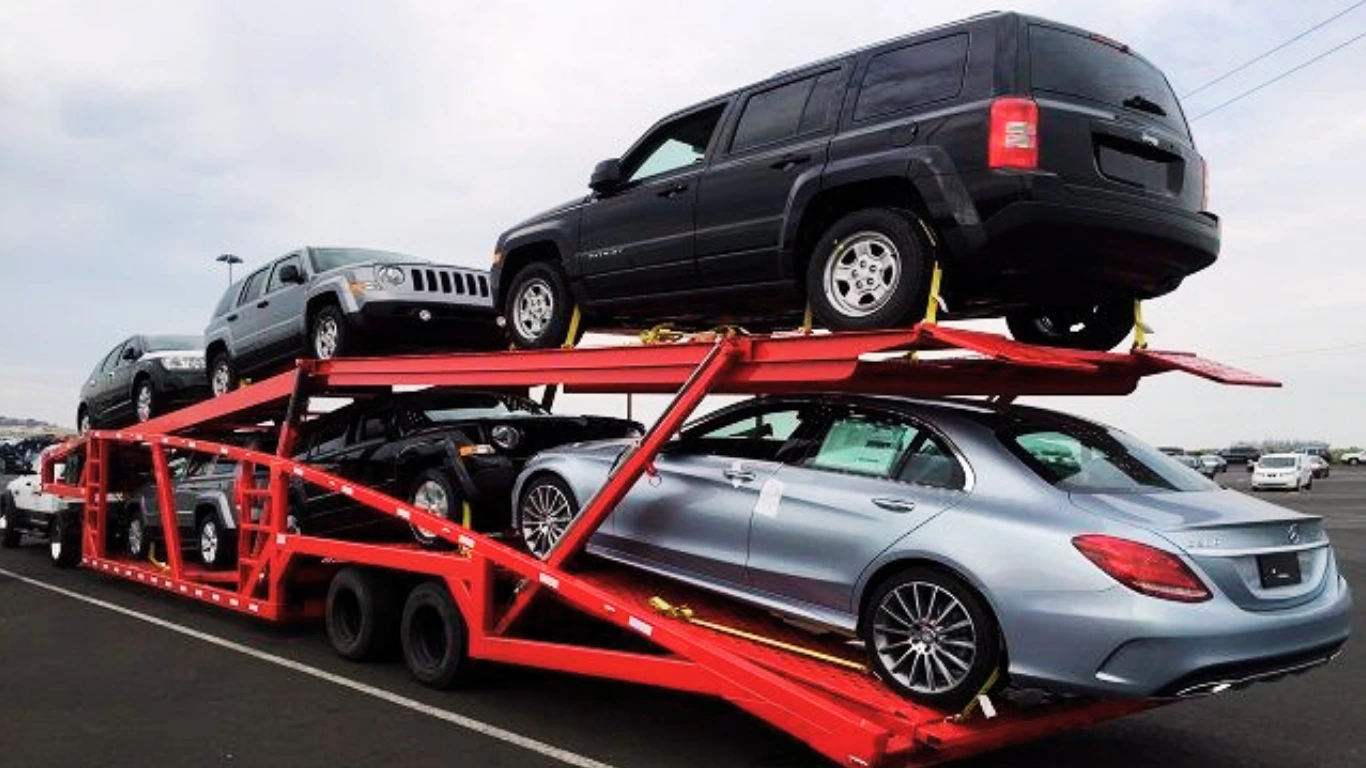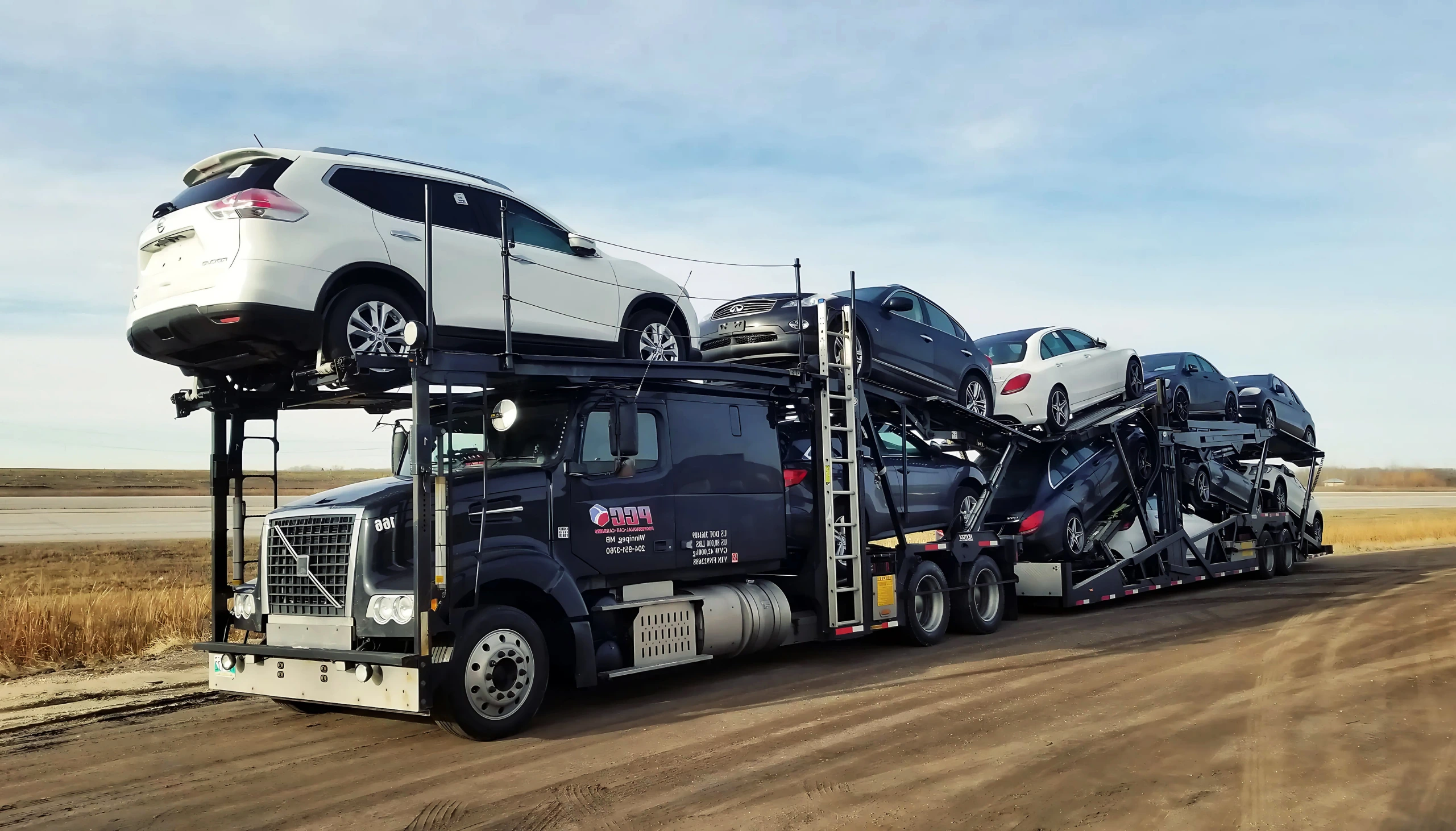
Ship Car to Another State
Want to ship car to another state? When shipping cars to another state, you can choose how it gets done and which company does it. Then your search ends here with us. Rapid Auto Shipping is a dependable auto shipping company with more than 14 years of state-to-state vehicle shipping experience. Contact us for a safe, affordable, and hassle-free shipping experience.
State to State Car Transport Service You Need | Ship Car to Another State
Auto transport from state to state is becoming more and more popular among Americans as a simple and reasonably priced option for ship car across state. Because of their dependability and convenience, auto transport services are growing in popularity, whether for seasonal needs, new purchases, or relocation.
Long-distance driving can be stressful and time-consuming and cause unnecessary mileage that damages your car. Rapid Auto Shipping is here to help with that. We provide dependable, effective, and safe state to state auto shipping services. Our staff makes sure that your car arrives at its destination in top shape, on schedule, and without any problems at all. We can help you whether you need to ship car to another state or across the nation.

State to State Car Transport
State-to-state car transport is a professional shipping service for cars that lets you move your car from one state to another quickly and safely without having to drive it yourself. State-to-state auto transport is a convenient option whether you're moving, buying a car from another state, or traveling during the holidays.
Why Choose Rapid Auto Shipping?
In the continental United States of America, Rapid Auto Shipping is the best company to ship car to another state. We are experts at moving cars across the country from door to door without any problems. Our team of professionals will make sure that your car is delivered on time and with care. Instead of putting extra miles on your car and going on long, tiring road trips, let us take care of the details while you relax and enjoy the ride.
Professional Service
Our team of professionals will make sure that your car is delivered on time and with care.
Time Saving
Instead of putting extra miles on your car and going on long, tiring road trips, let us handle it.
Door to Door
We move cars across the country from door to door without any problems.
Reasons To Ship Car To Another State
Some people choose to ship their cars across state lines instead of driving them. In the following situations, moving a car from one state to another is usually the best choice:
Moving for Personal or Work Reasons
When people move to a new state for work, family, or retirement, they often need to move their cars.
- Keeps your car from getting too much mileage and wear and tear.
- Saves time so you can focus on getting used to your new home.
Seasonal Transport (Snowbird Car Transport)
A lot of snowbirds move between states in the north and south to avoid bad weather.
- Shipping a car makes travel safe and easy, and it keeps you from having to drive long distances.
Buying or Selling a Car in a Different State
Buying a car in another state from a dealership or an individual seller.
- Getting someone from another state to buy my car.
- Rapid Auto Shipping takes care of the details and makes sure the delivery is safe.
People in college Changing states
For ease of travel, college students who live far away may need a car.
- Avoids the stress of a long drive and makes sure the car is ready when you get there.
Moving classic or expensive cars
The owner of expensive cars prefer enclosed car shipping because it keeps their cars safer.
- Keeps you from having to deal with road hazards, bad weather, and extra mileage.
Moving a Non-Operational Vehicle:
Professional auto transport companies have special carriers that can move your car even if it can't be driven.
- It saves time and money by not having to tow the car long distances.
Avoiding Long Distance Hassle
It can be tiring, expensive, and dangerous to drive thousands of miles.
- When you ship a car, you don't have to worry about things like gas prices, lodging, and breakdowns.
- Makes moving stress-free while your car is safely moved.
Safer and better value for money
There are risks with long road trips, like getting lost, having an accident, or getting tired.
- It's safer and usually cheaper to hire a professional auto transport service than to drive yourself.
No matter why you need to ship your car from one state to another, Rapid Auto Shipping will make the process easy and affordable.
Cost to Ship Car to Another State
Shipping a vehicle over a long distance, such as from one state to another, involves various factors. Also, these factors affect the cost of car shipping. The average cost of moving a car to another state is mentioned here to help you understand a general shipping cost estimate.
Short Distances (up to 500 miles)
Medium Distances (500-1,000 miles)
Long Distances (1,000-2,000 miles)
Cross-Country (2,000+ miles)
Factors Affecting the Cost of Shipping A Car to Another State
Several factors determine how much to transport a car to another state. These typically consist of the following:
Shipping Distance:
Transporting a vehicle across the country will be more expensive than transporting it to a nearby state. As the distance increases, so does the expense associated with car shipping.
Shipping Options:
Premium options, like enclosed transportation rather than open, can be significantly pricier than standard services.
Vehicle Type:
The larger and more expensive a vehicle is, the more it typically costs to transport. Transporting high-value cars, such as exotic or classic automobiles, or alternative vehicles, such as RVs, ATVs, and motorcycles, may incur additional fees.
Time of Year:
The demand for car shipping fluctuates throughout the year, affecting the cost. For example, shipping a vehicle in summer costs more due to peak demand.
Vehicle condition:
Shipping inoperable vehicles requires special equipment and handling, which may cost you extra.
Shipping speed:
If you need expedited shipping or have a tight delivery schedule, you can expect to pay more.
State to State Car Shipping
Professional auto transport services with various options to meet your specific needs
Our Shipping Services
Choose from our comprehensive range of auto transport services designed to meet every need and budget
Open Auto Shipping
Budget-FriendlyBudget-friendly service using open-air trailers for standard vehicles. Multiple vehicles transported at once to reduce costs.
Enclosed Auto Shipping
PremiumPremium protection for luxury, classic, or vintage vehicles using enclosed trailers with professional staff care.
Door to Door Shipping
ConvenientConvenient pickup and delivery at your chosen locations, eliminating the hassle of visiting terminals.
Non-Running Car Transport
SpecializedSpecialized service for non-operational vehicles with professional staff and specialized equipment.
How to Ship Your Car
Our streamlined process makes car shipping simple and stress-free in just four easy steps
Request a Quote
Visit our website or contact us through Live Chat, email, or phone to get started.
Book Your Shipment
Schedule your shipment with our convenient electronic contracts sent via email.
Car Pickup
Our skilled driver will inspect and load your car on the appointed day and time.
Car Transportation
Receive your car at destination with estimated arrival time provided before delivery.
Cheapest Ways to Ship Your Car
Smart strategies to reduce your car shipping costs while maintaining quality service
Pick Open Transportation - Most affordable option compared to enclosed transport
Be Flexible with Your Schedule - Book during off-peak times for better rates
Avoid Expedited Shipping - Standard shipping costs significantly less
Choose Terminal to Terminal - Save money by using transportation hubs
Pro Tip
Booking in advance and being flexible with your dates can save you hundreds of dollars. Last-minute or expedited shipping requests typically cost significantly more.
Popular Interstate Routes
Explore our most popular shipping routes with estimated costs, distances, and delivery times
| Route | Distance (Miles) | Delivery Time | Cost Range |
|---|---|---|---|
| California to Texas | 1,500 - 1,800 | 3 - 5 Days | $900 - $1,500 |
| Florida to New York | 1,000 - 1,300 | 2 - 4 Days | $800 - $1,400 |
| Illinois to California | 1,800 - 2,100 | 4 - 6 Days | $1,000 - $1,600 |
| Texas to Florida | 900 - 1,200 | 2 - 4 Days | $700 - $1,300 |
| New York to Texas | 1,500 - 1,700 | 3 - 5 Days | $900 - $1,500 |
| Arizona to Washington | 1,200 - 1,500 | 3 - 5 Days | $850 - $1,400 |
| Georgia to California | 2,200 - 2,400 | 5 - 7 Days | $1,200 - $1,800 |
| Ohio to Florida | 900 - 1,100 | 2 - 4 Days | $750 - $1,300 |
| North Carolina to Texas | 1,200 - 1,400 | 3 - 5 Days | $850 - $1,400 |
| Pennsylvania to Illinois | 600 - 800 | 1 - 3 Days | $600 - $1,000 |

0 Yr
In the business
0K
Quotes
0K
Vehicles Shipped
0.0/5
Overall Rating
Rapid Auto Shipping: Your Trusted Ship Car to Another State Partner
At Rapid Auto Shipping, we know that entrusting your car to someone else is a big decision. That's why we're committed to delivering a hassle-free, worry-free, and secure auto transport experience. With years of experience and thousands of happy customers in the U.S., we've established an excellent reputation.
To ship a car to another state, begin by making a quick phone call. Please feel free to reach out to our team of transport experts at +1 (833) 233-4447.

Everything you need to know about our auto transport services
An affordable open carrier vehicle transport service is one of the most cost-effective methods for shipping a car to another state. To further enhance affordability, consider opting for terminal to terminal delivery. This entails dropping off and picking up the vehicle at a designated location. Additionally, selecting flexible scheduling enables transport companies to optimize trailer capacity by efficiently filling it up from nearby areas.
The duration of car shipping can vary depending on factors such as the move's distance and the company's scheduling policies. In most locations in the contiguous United States, estimating a delivery time between three days and one week is reasonable. Moves over shorter distances will require less time, whereas shipping a car across the country to Hawaii, Alaska, or any other U.S. territories may require a significantly longer duration.
The typical cost of hiring another state vehicle shipping company ranges from $0.70 per mile for distances between 1000 and 1500 miles. Various factors, including the length of the journey, the date of pick-up, the chosen route, the make and model of the vehicle, the method of transportation, the time of year, the condition of the car, and any applicable discounts, determine the cost of shipping a vehicle to another state.
Many car shipping providers have restrictions on allowing personal belongings to be placed inside the vehicle during transportation. At Rapid Auto Shipping, customers can ship personal items weighing up to 100 pounds in their cars. However, it's important to note that the cargo insurance policy will not cover these unique items.
It is advisable to have your car inspected and undergo routine maintenance before transporting it to another state. After completing the task, it is advisable to take photographs and make notes of any scratches, dents, or dings that may already be present on your vehicle. It is essential to ensure you have a spare set of keys readily available upon receiving the car.
An enclosed carrier is distinct from an open carrier in that it transports vehicles within a truck, protecting them from the elements and other external factors, as opposed to being exposed to the open air. Although it may be pricier, this option is highly recommended for luxury or collector cars due to its excellent protection against harsh weather conditions and potential damage from road debris.